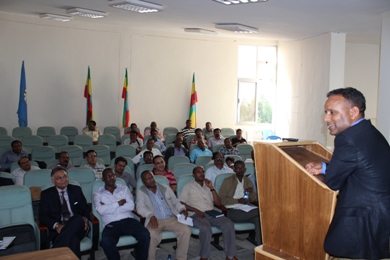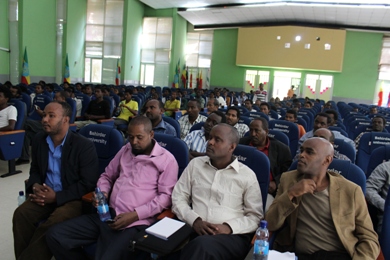BDU:Bahir Dar Institute of Technology (BIT) has begun its 2nd international conference on the advancement of science and technology.
The President of Bahir Bar University, Dr. Baylie Damtie, addressing the participants, remarked that an effort is being made in developing the university in research, science and technology.
Generating wealth through the instrumentality of science and technology and graduating entrepreneurs who could set up grand business companies and create employment opportunities for our young graduates are our priorities, Dr. Baylie said.
Honourable Wondwossen Kiflu, State Minister of the Ministry of Education, making opening remarks, has underlined that the roles of higher institutions like Bahir Dar University is supplying inputs of science and technology in the nation’s development endeavors.
Technology capacity development in relation to domains like marketing and human resources is decisive and choosing and focusing on an area to leapfrog is a necessary lesson to be acquired form countries like Korea, Mr. Wondwossen said.
The Director of Ethiopian Roads Authorities, Mr. Bekele Nigussie, in his key note speech, stressed that Ethiopia is showing a relatively remarkable progress in the realm of road construction though it still has the lowest road density in the world.
Mr. Bekele urged professionals to excel in their specific fields of specialization in order to meaningfully and innovatively contribute to the development projects Ethiopia is currently undergoing. “Disorder the existing orders to make a better order”, Mr. Bekele, remarked.
Tomorrow, Saturday, May 17, 2014, presentations and plenary speeches will be made in two parallel sessions, and hence lively discussions are anticipated.








